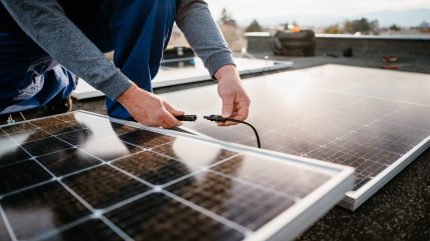
Construction has commenced on Écoparc Châteauguay 30, a green industrial project in Châteauguay, Canada.
The project is a collaboration between MONTONI, the Fonds immobilier de solidarité FTQ, Montez Corporation, and the City of Châteauguay.
Spanning nearly 450,000ft², the C$95m ($69m) development will be divided into five industrial-purpose units.
NEUF Architect(e)s has designed the building, which is expected to be delivered by mid-2025.
This venture is MONTONI’s first project in the city and aligns with the company’s objective to decarbonise its real estate asset portfolio.
MONTONI Group president Dario Montoni said: “Écoparc Châteauguay 30 is yet another project in our expanding portfolio of real estate developments strategically positioned across Québec as part of the supply chain sector.
“We build sustainable properties never compromising on quality that foster occupant wellness and that, we hope, will be a source of pride for future generations.”
Fonds immobilier de solidarité FTQ president and CEO Martin Raymond said: “The Fonds immobilier is committed to the real estate market’s sustainability transition, and Écoparc Châteauguay 30 is perfectly in keeping with our approach to helping reduce greenhouse gas [GHG] emissions.”
The project aims to achieve Leadership in Energy and Environmental Design (LEED) Gold certification for the building’s core and shell, as well as Zero-Carbon Building – Design certification.
Écoparc Châteauguay 30 is expected to meet the industry’s sustainability standards.
The operational-phase carbon footprint of the building will be minimised through the installation of nearly 200 roof-mounted solar panels.
Furthermore, the project targets a 50% reduction in energy costs and aims to cut GHG emissions by more than 60% compared to a standard industrial building.
Additionally, a 50% reduction in water consumption is anticipated.


